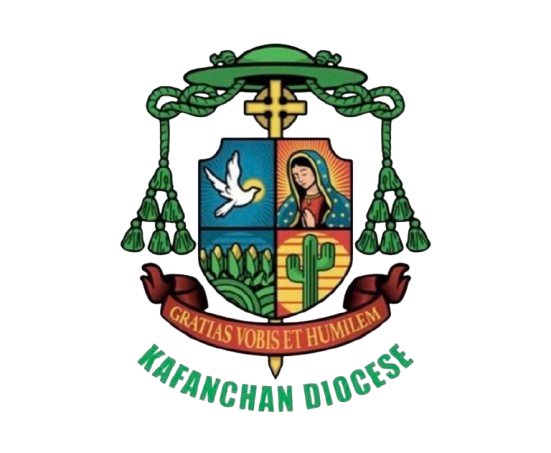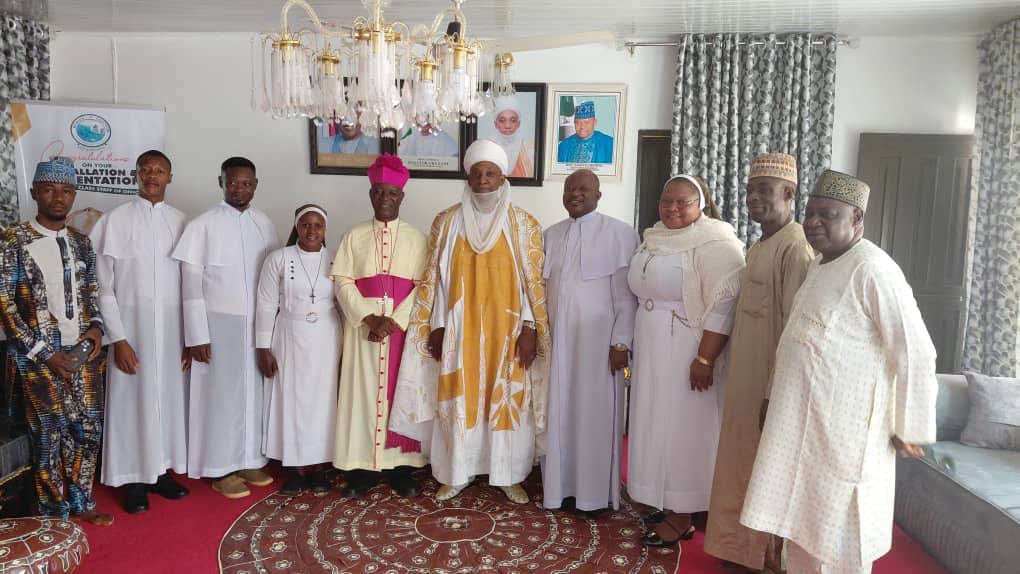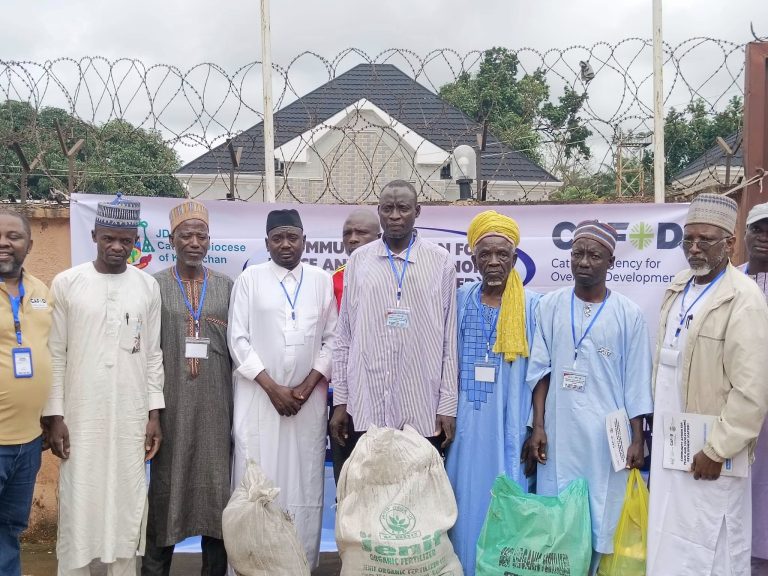How the JDPC Is Making the World a Better Place.
Introduction
The Justice, Development and Peace Commission (JDPC) is transforming lives. Rooted in Catholic social teaching, JDPC operates across Nigeria’s dioceses and beyond. Its mission: restore dignity, promote justice, empower communities. It tackles poverty, conflict, legal access, health, livelihoods. It advances the UN Sustainable Development Goals (SDGs). Below, you’ll see how JDPC makes measurable impact through real programs, partners, and progress.
Origins and Vision
The global JDPC began in 1967 under the pontifical commission Justicia et Pax. Its aim: awaken communities to social justice and participatory development (jdpcenugu.org.ng, JDPC Nnewi). In Nigeria, each diocesan JDPC follows this mandate. JDPC Ibadan formed in 1991. JDPC Nnewi launched in 2002. JDPC Onitsha began in 1990, and JDPC Enugu has operated similarly (Wikipedia).
The vision is clear: holistic development, human dignity, and sustainable peace. Its mission focuses on justice, rights, governance, and empowerment (globalhand.org, jdpcenugu.org.ng).
Legal Aid and Access to Justice
Asylum-Seekers and Refugee Appeals
Since 2016, JDPC Ijebu Ode has extended legal aid to rejected asylum-seekers. It files appeals before the Refugee Appeal Board and supports procedural fairness. This fills a gap in Nigeria’s asylum system and aligns with international refugee law. The program has reduced backlog and improved outcomes for displaced persons (ACSG).
Prisoners and Awaiting-Trial Detainees
JDPC Ibadan is active in providing legal aid and prison welfare. It visits Agodi Prison weekly. It helps awaiting‑trial inmates access justice. This work supports speedy trials and reduces prison congestion (jdpcibadan.org). JDPC Enugu similarly offers legal counselling and prison visits to uphold human rights (jdpcenugu.org.ng).
Paralegal networks across dioceses provide legal first aid. In Ibadan, trained paralegals resolved 303 cases by 2020 and 501 cases by end‑2024 (jdpcibadan.org).
Empowerment and Livelihoods
Microfinance, Farming, and Skills
In Ibadan, JDPC runs capacity‑building for farmers. From 2014 to 2020, 650 farmers increased output by 20% on average. Animal mortalities dropped by 60% since 2010. Over 500 farmers experienced sustained improvements via technical training and services (jdpcibadan.org).
JDPC Onitsha and Enugu also support micro-credit and women’s livelihood projects. JDPC Onitsha collaborates on flood rehabilitation and microfinance. JDPC Enugu fosters agricultural empowerment and financial tools for marginalized individuals (jdpcenugu.org.ng).
Women and Youth Economic Inclusion
JDPC Nnewi promotes adult literacy, skill acquisition, and housing women empowerment programs. It supports orphans and vulnerable children through microfinance and education initiatives (JDPC Nnewi). In Abuja, JDPC’s Youth Entrepreneurship Development and Empowerment Scheme (YEDES) trained 200 youths in 2023 in fashion, catering, poultry, IT. They received startup kits to launch businesses (jdpcabuja.org.ng).
Health, Awareness & Community Development
Medical Outreach and Mental Health
JDPC Abuja partnered with Catholic medical practitioners for free medical outreach in indigent communities in Mpape and Gishiri in July 2023. Services included blood tests and eye screenings (jdpcabuja.org.ng).
Environmental Advocacy
JDPC Abuja launched a multi-phase tree planting campaign in 2023. With 10,000 seedlings provided by Catholic Relief Services, the drive engaged deaneries across FCT to promote green life and environmental protection (jdpcabuja.org.ng).
Anti-Human Trafficking & Digital Safety
JDPC Abuja hosted anti‑trafficking campaigns for secondary schools in October 2023. Teams educated students about human trafficking, digital risks, and formed Anti‑Trafficking Vanguards in schools (jdpcabuja.org.ng).
They also marked World Day Against Trafficking on July 31st 2023 in collaboration with NAPTIP and the AATiP Cluster. The rally raised awareness and demystified trafficking tactics (jdpcabuja.org.ng).
Peace Building and Governance
Conflict Mitigation & Religious Freedom
JDPC Enugu works on civic education, transparency, tax justice, and peace. It runs grassroots monitoring programs and empowers youth and women to engage local governance (jdpcenugu.org.ng).
JDPC Issele-Uku and Jos diocesan networks coordinate peace and conflict mitigation via dialogue, alternative dispute resolution, and faith-based mediation in volatile communities (jdpcissele-uku.org).
JDPC Jos Forum facilitated intercommunal dialogue in Plateau State. Dialogue between ethnic groups led to a joint declaration committing to peaceful coexistence and rebuilding destroyed infrastructures like schools and places of worship (Wikipedia).
Advocacy & Civic Engagement
JDPC Ibadan secured parliamentary liaison status in Oyo State in 2013. It pushed for a community service law and passage in 2017 promoting non‑custodial justice and reduced prison sentences for petty offenders (jdpcibadan.org). This shows JDPC’s role in influencing policy.
Partnerships & Collaborations
International & Civil Society Networks
JDPC Ibadan partners with international donors including the British High Commission, Irish Aid, European Union, Oxfam, Misean Cara, Caritas, and Food and Agricultural Organization (ACSG, jdpcibadan.org).
JDPC Issele-Uku and Onitsha collaborate with Mercy Corps, USAID, Caritas Nigeria, Christian Aid, CRS, CiSHAN, Swisshand Foundation, and others on HIV/AIDS, trafficking, and microfinance projects (jdpcissele-uku.org).
Recognition Through Regional Events
JDPC Abuja represented the USAID/Palladium SCALE Program at the LEAP Africa Social Innovators Award in October 2023. That elevated JDPC’s profile in counter-trafficking discussions and innovation networks (jdpcabuja.org.ng).
JDPC’s involvement in the Africa Social Impact Summit (ASIS 2023 & 2024) aligned it with UN and Sterling One Foundation agendas to scale SDG solutions across Africa (Wikipedia).
Measured Impact Summary
Here are key impacts across JDPC dioceses:
- Legal Aid & Rights: Paralegals resolved over 500 cases in Ibadan by 2024 (jdpcibadan.org). Ijebu Ode asylum aid improved protection process.
- Livelihoods: 650 farmers increased yield by 20%. Animal mortality decreased by 60%. Over 500 farmers benefited (ACSG, jdpcibadan.org).
- Women and Youth: 200 youth trained with startup kits, dozens of women empowered through micro-credit and skill programs.
- Health & Awareness: Medical outreaches, environmental campaigns, anti‑trafficking initiatives reached thousands.
- Peace & Governance: Community dialogues reduced violence. Civic education improved public participation.
- Policy Influence: Community service law passed in 2017. Advocacy introduced data systems and policy recommendations.
These programs further the UN SDGs: SDG 1 (No Poverty), SDG 3 (Good Health), SDG 4 (Education), SDG 5 (Gender Equality), SDG 8 (Decent Work), SDG 16 (Peace, Justice, Institutions) (jdpcabuja.org.ng, Wikipedia).
Strategic Outlook: 2025–2028
Scaling Legal Aid and Paralegal Networks
JDPC aims to train more paralegals across all dioceses. This enhances access to justice for underserved communities nationwide.
Expanding Livelihood and Micro-Credit
Programs will deepen in agriculture, women entrepreneurship, and youth vocational training. More partnerships with donors to fuel sustainable microfinance.
Enhancing Civic and Conflict Capacity
JDPC plans to expand peacebuilding programs across states. Focus areas: religious tolerance, government engagement, early conflict warning at grassroots.
Environment & Health Integration
Tree planting and medical outreach models will scale across dioceses. Attention to climate advocacy and public health education will rise.
Strengthening Partnerships
JDPC will deepen collaboration with Caritas Nigeria, international NGOs, UN bodies, and faith-based actors to amplify impact.
Why JDPC’s Work Matters Globally
JDPC’s model merges faith, justice, and development. Its projects are data‑driven, replicable, and measurable. NGOs globally can learn from JDPC’s integrated approach to legal aid, peace, empowerment, and sustainable development.
Its alignment with global frameworks like the UN SDGs and inclusion in regional innovation summits positions JDPC as a model NGO not only in Nigeria, but for Africa and the world.
Conclusion
The JDPC is making the world a better place by offering real solutions. It supports justice for the marginalized. It empowers communities economically and socially. It fosters peace, health, and inclusion. It works with international partners to scale sustainable development.
JDPC blends faith and action. It transforms lives. It promotes human dignity. Across Nigeria and beyond, it drives progress toward a fairer, safer, and more just world.
Every program, every legal case, every livelihood project counts. JDPC’s footprints span food relief, prison welfare, tree planting, school awareness, paralegal counsel, and peace advocacy. Real numbers. Real people. Real hope.
With JDPC, Nigeria builds a future of justice, peace, and human development—for communities, for church, for global impact.


